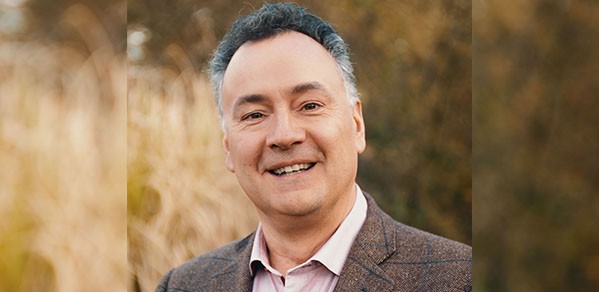
George Malliaras, Prince Philip Professor of Technology, who is widely considered a founding father of organic bioelectronics, has been announced as a 2023 Blaise Pascal Medallist.
I am honoured and humbled by this recognition and credit should go to my group and collaborators who are a constant source of inspiration for me.
Professor George Malliaras
The Blaise Pascal Medal in Materials Science is awarded to Professor Malliaras by the European Academy of Sciences (EURASC) in recognition of “his contributions as a pioneer in science and technology of organic electronic materials”.
The citation reads: “He is widely considered a founding father of organic bioelectronics, a field that applies organic electronic materials to biology and medicine. Professor Malliaras is one of the world’s foremost researchers in the field of soft electronic devices, who has made major contributions to our understanding of organic electronic and bioelectronic devices.
“He has made significant impacts in a number of areas including: understanding charge injection at metalorganic interfaces; patterning of organic electronic materials; understanding mixed conduction in organic electronic materials; development of mixed semiconductor devices; and the use of organic devices as brain interfaces.”
Professor Malliaras is Director of the EPSRC Interdisciplinary Research Collaboration (IRC) in Targeted Delivery for Hard-to-Treat Cancers. The IRC includes leading brain surgeons, and with their help, Professor Malliaras is pursuing the first-in-human trials of implantable drug delivery devices in glioblastoma patients1.
At the Bioelectronics Laboratory, he leads a group of scientists, engineers and clinicians who study the fundamental processes that take place at the abiotic/biotic interface and develop better tools for healthcare. Research themes include the development and translation of implantable and wearable devices that interface with electrically active tissues, with applications in neurological disorders and brain cancer.
On receiving the Blaise Pascal Medal, Professor Malliaras said: “I am honoured and humbled by this recognition and credit should go to my group and collaborators who are a constant source of inspiration for me.”
Professor Malliaras, who has also separately been inducted as a member of the Academy of Europe, will be formally presented with the Medal at the Annual Symposium of the EURASC on 23-24 October 2023, in Madrid, Spain.
---
1 Glioblastoma is an aggressive form of brain tumour that is hard to treat because it comes with its own defence mechanism.

